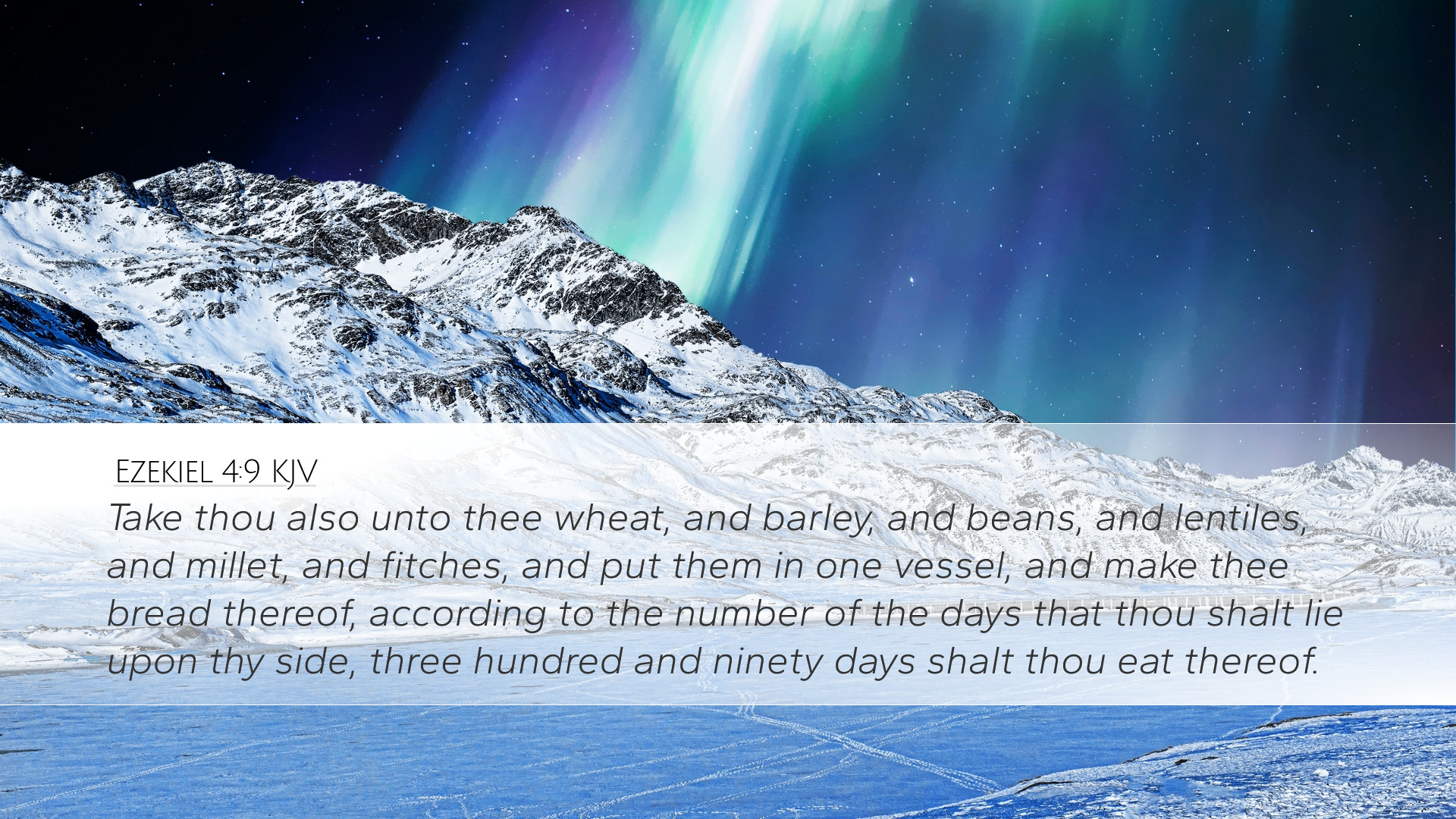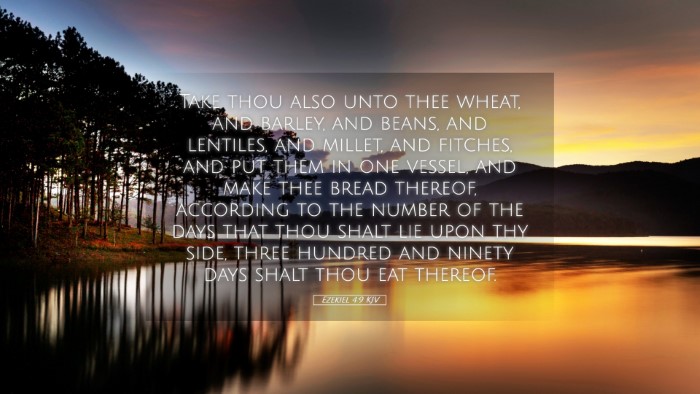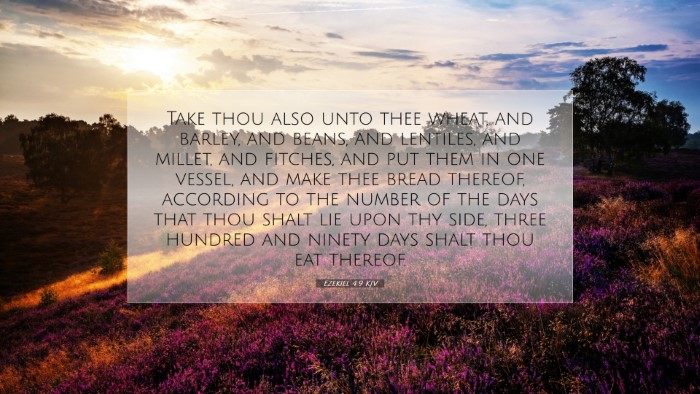Ezekiel 4:9 - Commentary Summary
Ezekiel 4:9 reads: "Take thou also unto thee wheat, and barley, and beans, and lentiles, and millet, and fitches, and put them in one vessel, and make thee bread thereof, according to the number of the days that thou shalt lie upon thy side, three hundred and ninety days shalt thou eat thereof."
This verse represents a critical moment in Ezekiel's prophetic ministry, as it lays out a unique and symbolic act meant to illustrate the siege and suffering that Israel would endure due to their sins and rebellion against God.
Contextual Overview
Matthew Henry emphasizes the significance of the preceding chapters, wherein God calls Ezekiel to be a watchman for the house of Israel. In this context, the act of preparing bread from various grains symbolizes the nutrition of truth and the sustenance of hope that God provides, even amidst judgment.
Albert Barnes notes that the specific grains mentioned serve as an illustration of the diversity and abundance that God allows for provision in times of hardship. The composition of different grains may symbolize the complexity of Israel's situation and the varied nature of sin, which requires different approaches in dealing with it.
Symbolism of the Ingredients
-
Wheat: Represents strength and nourishment. In the biblical context, wheat is often seen as a staple, signifying life's essentials and divine sustenance.
-
Barley: Typically associated with the poor, barley illustrates humility and the reality of scarcity during the impending siege.
-
Beans and lentils: Both are rich in protein and indicative of survival. They reflect Israel's need to sustain themselves even when the land would be barren.
-
Millet and fitches: These grains symbolize resilience; they indicate that God still enables His people to endure, even when their circumstances are dire.
Theological Implications
Adam Clarke interprets this passage as a poignant reminder of both the severe repercussions of sin and the grace of God in providing for His people during their trials. The act of lying on his side for extended periods illustrates the weight of sin and its consequences, while the provision of food signifies God's ongoing covenantal care.
Furthermore, the specifics of the rationed bread highlight the aspect of preparation and anticipation of hardship—elements of faith in action as well as an urgent call to repentance. God uses Ezekiel's actions as a living demonstration of impending judgment while also affirming His commitment to sustain His people.
Application for Modern Believers
The imagery found in Ezekiel 4:9 serves as a potent metaphor for the spiritual sustenance required in times of trial. Just as the prophet Ezekiel was instructed to make bread from these grains, believers today are called to utilize the resources God provides—His Word, community, and prayer—during their spiritual sieges.
-
Preparation: Just as Ezekiel prepared the bread, Christians must prepare their hearts and minds for the challenges of life through prayer and study of Scripture, fostering resilience in the face of adversity.
-
Community Support: The inclusion of various grains represents the need for diverse resources and support systems within the body of Christ, where different members contribute to the strength and nourishment of the Church.
-
Endurance: In recognizing the physical and spiritual sustenance needed during hardships, believers are reminded that God's grace is sufficient, affirming their dependence on Him throughout their spiritual journeys.
Conclusion
Ezekiel 4:9 encapsulates profound spiritual truths about the nature of sin, judgment, and God’s provision. Through the prophetic action of bread-making from various grains, the text invites pastors, students, theologians, and scholars alike to reflect on the multifaceted relationship between divine judgment and mercy. As believers engage with this passage, they are challenged to consider their own preparation for trials and the sustenance that flows from a faithful God.


